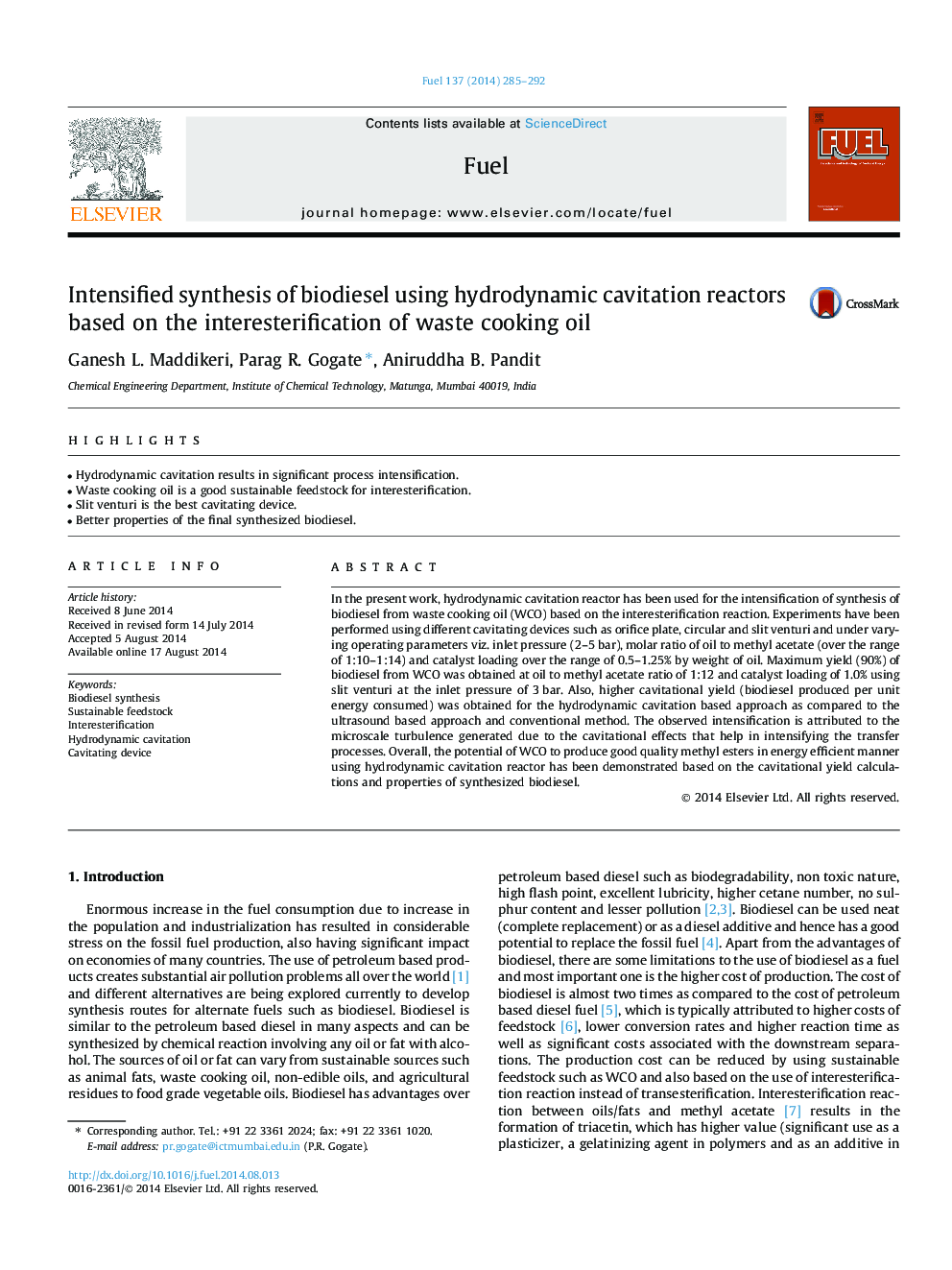| کد مقاله | کد نشریه | سال انتشار | مقاله انگلیسی | نسخه تمام متن |
|---|---|---|---|---|
| 206048 | 461136 | 2014 | 8 صفحه PDF | دانلود رایگان |
• Hydrodynamic cavitation results in significant process intensification.
• Waste cooking oil is a good sustainable feedstock for interesterification.
• Slit venturi is the best cavitating device.
• Better properties of the final synthesized biodiesel.
In the present work, hydrodynamic cavitation reactor has been used for the intensification of synthesis of biodiesel from waste cooking oil (WCO) based on the interesterification reaction. Experiments have been performed using different cavitating devices such as orifice plate, circular and slit venturi and under varying operating parameters viz. inlet pressure (2–5 bar), molar ratio of oil to methyl acetate (over the range of 1:10–1:14) and catalyst loading over the range of 0.5–1.25% by weight of oil. Maximum yield (90%) of biodiesel from WCO was obtained at oil to methyl acetate ratio of 1:12 and catalyst loading of 1.0% using slit venturi at the inlet pressure of 3 bar. Also, higher cavitational yield (biodiesel produced per unit energy consumed) was obtained for the hydrodynamic cavitation based approach as compared to the ultrasound based approach and conventional method. The observed intensification is attributed to the microscale turbulence generated due to the cavitational effects that help in intensifying the transfer processes. Overall, the potential of WCO to produce good quality methyl esters in energy efficient manner using hydrodynamic cavitation reactor has been demonstrated based on the cavitational yield calculations and properties of synthesized biodiesel.
Journal: Fuel - Volume 137, 1 December 2014, Pages 285–292
